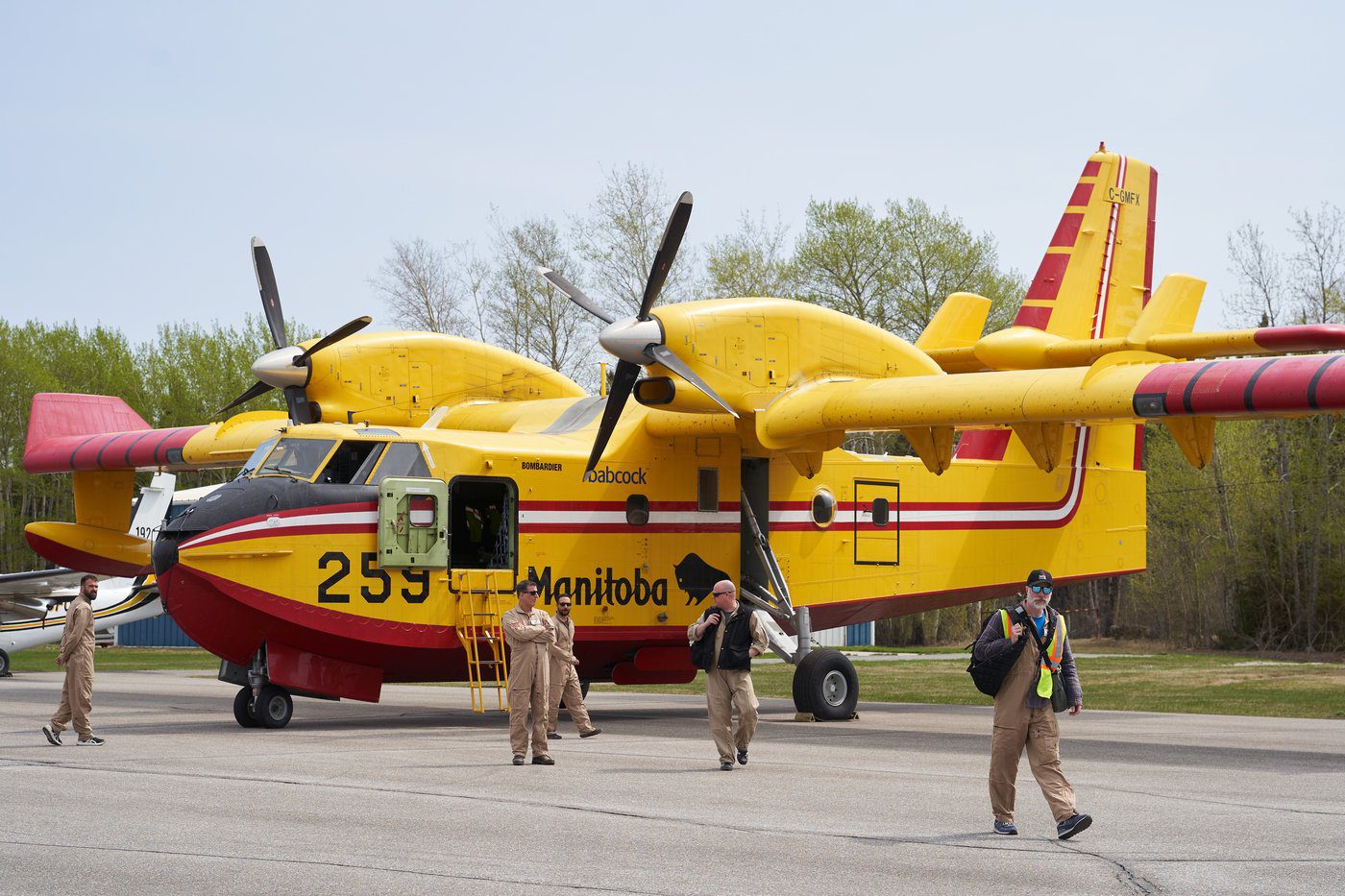Prairie wildfires developed on two fronts Friday as 1,000 more Manitoba residents were forced to flee their homes, while Saskatchewan’s RCMP laid charges against alleged fire-starters.
Saskatchewan Premier Scott Moe told a news conference that two people have been charged with setting wildfires.
He said one of them was charged in relation to a fire around La Ronge, which has forced 7,000 people to flee their homes.
“The RCMP have informed us that they have now charged a couple of individuals,” Moe said.
RCMP did not immediately respond to a request for comment.
Saskatchewan has 24 active wildfires that have forced between 10,000 and 15,000 people from their homes.
“Many if not virtually all of the fires that we’re dealing with in Saskatchewan, although not intentionally, are human caused. Some of those have been intentionally human caused,” Moe said.
The province, along with Manitoba, is under a state of emergency, making it easier for different levels of government to co-ordinate a response.
Manitoba has received help from the military to evacuate residents, mainly in remote First Nations.
Moe has faced calls from the Opposition NDP to follow suit.
The premier said while his government is in daily contact with federal officials, provincial emergency crews have so far been able to get evacuees out.
He said the Canadian Red Cross is also working to set up shelters for evacuees in Regina, Saskatoon and Prince Albert.
In Manitoba, the town of Snow Lake, near Flin Flon, issued a mandatory evacuation order for its residents due to a large wildfire threatening the area.
“You must leave because of the danger to your health and safety,” reads a notice on the town’s Facebook page.
That fire, which has grown to more than 3,000 square kilometres, has already forced out all 5,000 residents of the city of Flin Flon and about a thousand more in surrounding cottages and homes.
When the Snow Lake evacuees are added in, Manitoba has about 19,000 out of their homes.
There are 27 total fires in the province, eight of them out of control.
Earlier Friday, Manitoba Premier Wab Kinew said evacuees have found a place to stay with friends or family, in hotels or in congregate shelters.
He said getting those evacuees into private accommodations is tricky because many hotel rooms are being reserved for people with “intense” medical issues.
“We just have to do a balancing act,” Kinew said. “At this point, the big-picture challenge around rooms has largely been addressed.
“It’s now just about the daily balancing act of triaging people coming in and people who are already in shelters and matching them up with rooms.”
There are shelters in Winnipeg, Thompson and Brandon.
The City of Flin Flon, on social media, said that no structures have been lost in the city or in nearby Creighton, Sask.
“Winds in the area are now blowing from the south, resulting in heavy smoke and fire moving towards the south side of Flin Flon,” the city said in an update Friday.
The city added that fire protection, including sprinklers, is set up and firefighters would work to protect property.
Provincial fire officials said evacuations have been completed at First Nations at Pukatawagan and Cross Lake.
In northern Alberta, approximately 1,300 residents of the town of Swan Hills were allowed to return to their homes Thursday, about a week after fleeing from a wildfire.
But about 340 kilometres west in the County of Grande Prairie, people in the Municipal District of Opportunity were ordered out.
— with files from Steve Lambert in Winnipeg
This report by The Canadian Press was first published June 6, 2025.
Aaron Sousa, The Canadian Press





